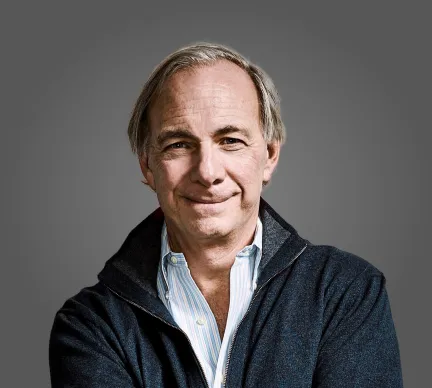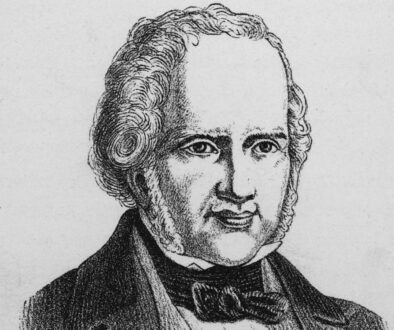What I Wish for You and Others at This Time
By Ray Dalio
These are some thoughts that came to mind as I was reflecting on Christmas that I thought I’d share with you along with my holiday wishes. Thinking about Christmas led me to think about the messages of Christ, which Christmas was originally meant to celebrate but seems to have been lost in Christmas gift-giving and celebrations.
To be clear at the outset, I am not a religious scholar nor devoted Christian nor follower of any religion, but I am an open-minded eager appreciator of wisdom, including religious wisdom. I can see that Christ was a very wise man who offered a lot of wisdom that I think is worth reflecting on, especially as Christmas is approaching.
The message that I appreciate most from Christ is about how people should behave with each other to have the best possible society, to “do unto others as you would have them do unto you.” It is a message about grace, love, peace, and harmony—i.e., about the power of forgiveness, empathy, and treating others the way they want to be treated. While it may be idealistic sounding, it is a very practical approach to life based on the reality that “what goes around comes around” that is similar to spiritual concepts that many other religions refer to with different terms like karma. This spiritual approach elevates us above our selfish and animal instincts so that we can live out the higher-level logical and spiritual realization that a society in which there are exchanges of acts of helpfulness and kindness works much better than a society without them. Following this approach also provides the psychic rewards that accompany being in harmony with other people, nature, and the other forces of the universe around us. In other words, one can be spiritual, which isn’t necessarily religious (e.g., Christian), to embrace that message. It is what distinguishes elevated civilizations from barbarism. I think that it’s good to keep this picture in mind as a beacon to see if we are following it or drifting away.

Along these lines, it appears to me that, as a society, we are, by and large, drifting away from spirituality as we are fighting more to maximize what is, shortsightedly, believed to be in our individual best interests, which includes neglecting or harming others to get what we want, with others neglecting or harming us in return. As a result, rather than living as elevated spiritual beings, it is more like living as barbarians and animals and fighting for our self-interests without cooperating to take care of the mutual interests of those we share our world with. This is the antithesis of spirituality. At its extreme, it produces the bloodlust that we now see increasingly reported in the news and that we pray never spreads to affect us directly. Frankly, as you know, and for reasons I have explained previously, I am worried about this as my analytical self sees cause-effect relationships driving us into greater conflict. (For example, the widespread instinctual support for the murder of the insurance company executive is an example of an approach that I don’t think is consistent with Christ’s message.)
It is also clear to me that one of Christ’s wise messages, that is interestingly inconsistent with commonly held beliefs, is about wealth and power. Notably, the “King of Kings” was born to a poor family in a stable, laid in a manger, and welcomed by shepherds. The life he lived and advocated defied worldly notions of power and grandeur yet was more powerful than the greatest fortunes of any time. That story reminds us that true power and the greatest wealth are not found in one’s money and status but in a more spiritual approach that is based on the kindness and generosity one gives to others. What do we really need and what do others really need to have the best working society? As I think about economics and politics a lot, I think about that question a lot. Independent of thoughts of Christ, religions, and ethics, I have seen and believe that broad-based quality education leading to broad-based productivity and prosperity with civility and mutual caring makes for the best possible societies.
Christ’s views about forgiveness also reminds me that we are not defined by our failures or our past but are continually evolving though a lifetime and beyond—because the forgiveness of our mistakes and learning from them is better. Mistake making, learning, being forgiven, and improving, which is a fundamental underpinning of Christianity, is a wise, practical approach.
The more detailed approaches and rules of Christianity, as with all other religions, are fleshed out in great levels of detail such as in the Ten Commandments and the Old and New Testaments. Many of these details, like lifestyle requirements, were never written by the Prophet-founder; they were written by followers who say they must be adhered to and these rules are often argued and fought over. Some I like, and some I don’t like and think are antithetical to what Christ wanted. I do particularly like The Serenity Prayer: “God, grant me the serenity to accept the things I cannot change, the courage to change the things I can, and the wisdom to know the difference.”
At the same time, as you must know, religions are often used by those who have agendas to rally people to do the opposite of the spiritual things. For example, Montesquieu supposedly said, “there is no Kingdom driven to greater bloodshed than that of Christ,” and the Old Testament said an “eye for an eye and a tooth for a tooth.” I would have appreciated a clearer principle to provide guidance on exactly when one should fight/seek revenge rather than turn the other cheek. I have my own principles about that that I won’t get into, but this is just one of many examples of why I believe we each need to have our own principles rather than just follow others’ principles.
Above all else, the part of Christ’s message that is of paramount importance to me (which is the message of most other religions, even those religions that don’t have the same beliefs in a God or Gods) is the message of spirituality—i.e. the connectivity and harmony with all else.
Those are the reflections that ran through my mind while recently thinking about Christmas. I’d be curious about yours, so please share them.
As for what I wish for you, it is what I believe will be best and most enjoyable for you, which is a life with more spirituality—in other words, a closer connection to others and to the forces that drive everything.



